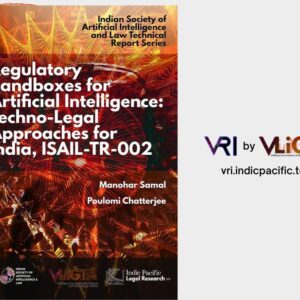The recent NEP 2020 policy has actively propagated digital savvy methods to enhance computational thinking by introduction of Artificial Intelligence (AI), Big Data Analytics, Machine Learning and so on. The larger intention is to assist the development of cognitive ability of the students and render them necessary skills which are at par with international standards.
AI is not only being considered as a medium of teaching and carrying out other administrative tasks, it is being considered as a separate discipline altogether. Simplification, accessibility, familiarisation and inclusivity will form the cornerstones for entry of AI into the mainstream education industry. Flexibility in learn- ing and multidisciplinary nature of academic studies shall help in employable skill rejuvenation through developing software capabilities while continuing University edu- cation. AI in education is becoming a part of national vision for several countries.
China, UK and the US have already made significant developments in this area. Realizing the benefits of intelligent systems, the educational institutions around the globe are adopting AI for research as well as curriculum composition. AI can be accessible 24×7, learners get self-paced learning, extra teaching time and innovative methods to help them. Progressive ideas like introduction of Coding in the middle stages of education in NEP reflects a well-thought policy. It will not only enable mathematical and computational thinking, but also assist in creative use of digital technologies. As simple as Smart classrooms can have so many areas to accommodate an AI-like device. Some of the instances are Data Storage, tutoring, Advance Learning Systems, Grading Tests, Global classroom, noting attendance of students, analysing facial expression and so on. New innovative methods of social and emotional learning can also be introduced by effective use of AI.
It is acknowledged that AI has much to contribute in the education sector. It can determine early signs of student’s performance through academics, give real time feedback, predict future risk of failure, suggest areas which need to be worked upon which basically help Universities to take appropriate remedial actions in the interest of the students. Ability of AI to handle big data and process it could give a personalized experience to students based on daily performance and examination results. Along with being helpful for the student community, AI could also prove beneficial for administrative tasks, answering FAQs, making assignments and so on. It could tremendously reduce the burden on teachers while appropriating interventions through personal attention for students.
The intelligent systems can provide modern solutions and promote individualistic experiences, multilingualism and skill rejuvenation. The legal and policy discussion in AI revolves around ethics, data protection, regulations, cyber security, due diligence soft- ware, natural language processing and so on. Skill rejuvenation is at the core of the Policy. Skills help in navigating through unprecedented problems of today. Michael Chui, a Partner at McKinsey Global Institute rightly states “prepare today’s young people for a world of constant uncertainty”.
| VLiGTA Resource Identifier | ISA-R3 |
|---|---|
| Author(s) | Avani Tiwari, Dyuti Pandya, Neerja Seshadri, Paranjay Sharma, Prachi Puranik, Ritansha Lakshmi, Shubhangi Chaudhary, Yash Raj Verma |
| Editor(s) | Aryakumari Sailendraja, Nayan Grover |
| Publisher | |
| Publication Type | Digital |
Only logged in customers who have purchased this product may leave a review.



© Indic Pacific Legal Research LLP. All Rights Reserved.
Already on VLiGTA? Log in
Having trouble logging in? Learner help center
This site is protected by reCAPTCHA Enterprise and the Google Privacy Policy and Terms of Service apply.
Reviews
There are no reviews yet.